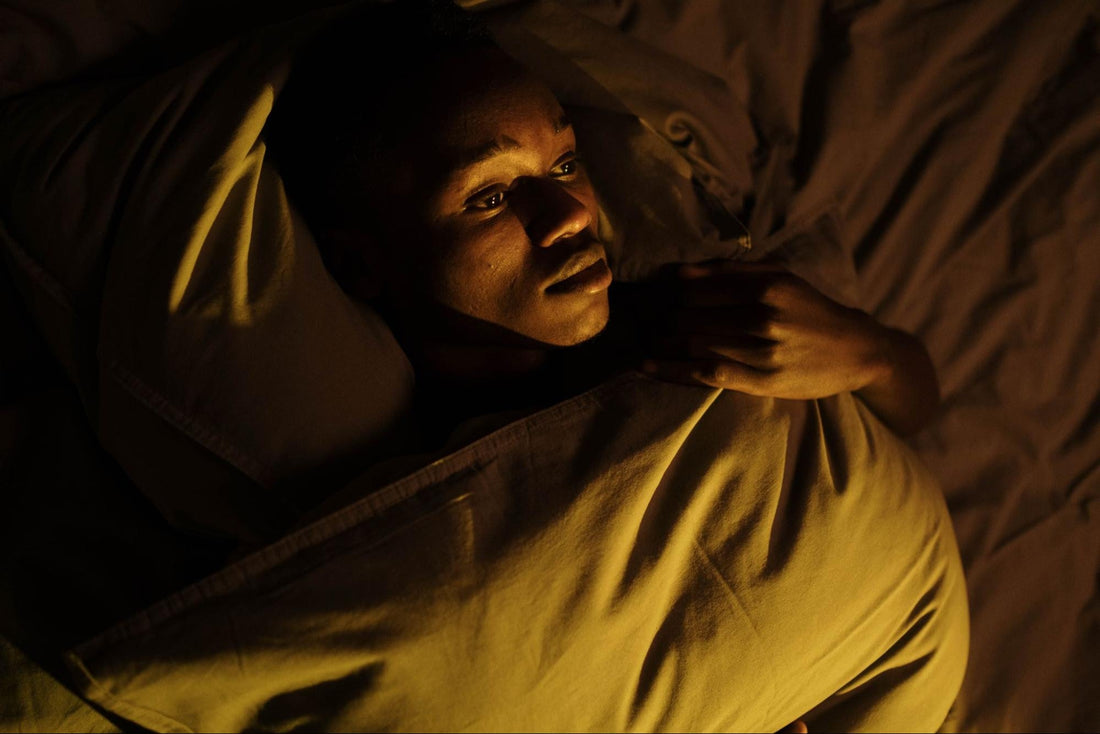
Insomnia and Mental Health: Understanding the Connection and How to Improve Both
Share
Insomnia is a common sleep disorder characterized by difficulty falling asleep or staying asleep, or waking up too early in the morning. It affects millions of people around the world and can have significant impacts on mental health. In this blog post, we'll explore the connection between insomnia and mental health, and provide some tips for managing insomnia.
Insomnia and Mental Health
Insomnia and mental health are closely linked, and people with insomnia are more likely to experience symptoms of anxiety, depression, and other mental health conditions. In fact, insomnia is often a symptom of these conditions and can make them worse.
One reason for this connection is that sleep plays a crucial role in regulating our emotions and mood. When we don't get enough sleep, our emotional regulation can be impaired, which can lead to mood swings, irritability, and difficulty coping with stress. In addition, sleep helps us process and consolidate memories, so a lack of sleep can make it harder to process and make sense of emotional experiences.
Another factor is that insomnia and mental health conditions often share similar underlying causes. For example, chronic stress is a common cause of both insomnia and anxiety, and people with depression may have disrupted sleep patterns as well. It's also possible that genetic and biological factors play a role in both insomnia and mental health conditions.

The relationship between insomnia and mental health is bidirectional, meaning that insomnia can contribute to mental health problems, and mental health problems can contribute to insomnia. For example, if you have anxiety, you may find it difficult to fall asleep because you're worried about things. But if you don't get enough sleep, you may feel more anxious the next day, and this can become a vicious cycle.
Insomnia can also have a negative impact on your ability to function during the day. If you don't get enough sleep, you may have difficulty concentrating, making decisions, and performing tasks. This can affect your work and relationships, and lead to feelings of frustration, irritability, and even hopelessness.
It's important to note that insomnia and mental health are not always causally related, and some people may experience insomnia without having a mental health condition. However, if you're struggling with both insomnia and mental health symptoms, it's important to seek help from a healthcare professional. They can provide personalized advice and treatment to help you manage your symptoms and improve your quality of life.

Managing Insomnia
If you're struggling with insomnia, there are several things you can do to manage it. Here are some tips:
- Establish a bedtime routine - Going to bed and waking up at the same time every day can help regulate your body's natural sleep-wake cycle. Establishing a relaxing bedtime routine, such as taking a warm bath or reading a book, can also signal to your body that it's time to sleep.
- Create a sleep-conducive environment - Your bedroom should be cool, quiet, and dark, with a comfortable mattress and pillows. Avoid using electronic devices in bed, as the blue light can interfere with sleep.
- Limit caffeine and alcohol - Caffeine is a stimulant that can interfere with sleep, so it's best to avoid it in the afternoon and evening. Similarly, while alcohol may help you fall asleep, it can disrupt your sleep later in the night.
- Manage stress and anxiety - If stress and anxiety are keeping you up at night, try relaxation techniques such as deep breathing or meditation. Talking to a therapist or counsellor can also help you manage your mental health.
- Consider cognitive-behavioural therapy - Cognitive-behavioral therapy for insomnia (CBT-I) is a type of therapy that helps you change negative thoughts and behaviours that can interfere with sleep. It's often more effective than medication in the long term.

Conclusion
Insomnia and mental health are closely linked, and managing insomnia can be an important part of managing mental health. By establishing a bedtime routine, creating a sleep-conducive environment, limiting caffeine and alcohol, managing stress and anxiety, and considering cognitive-behavioural therapy, you can improve your sleep and mental health.
If you're struggling with insomnia or mental health, don't hesitate to seek help from a healthcare professional. They can provide personalized advice and treatment to help you manage your symptoms and improve your quality of life.
